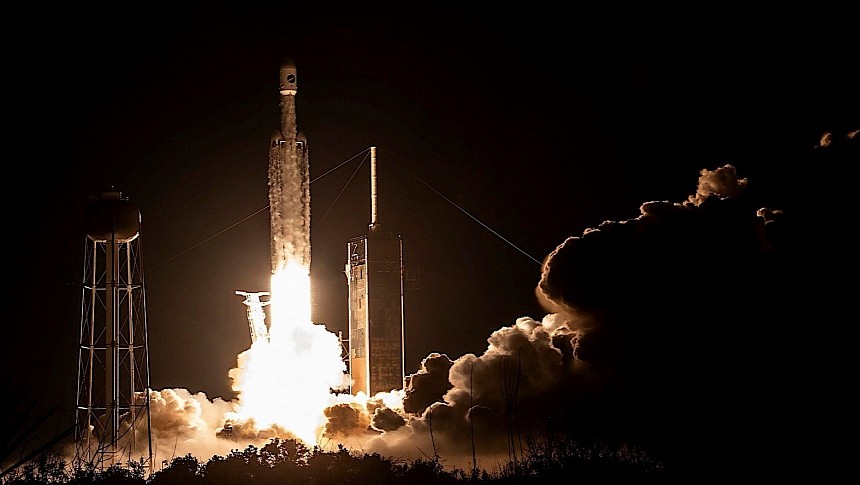At the end of December 2023, a SpaceX Falcon Heavy rocket lifted off from Launch Complex 39A at the Kennedy Space Center. It carried with it into space the Boeing X-37B autonomous spaceplane, a machine that has made the headlines for years now despite being one of the most secret aerospace projects in existence.
The plane is technically an Orbital Test Vehicle, meaning it is used as a platform to test technologies that are to be used by the American military, but possibly even the civilian world. Uncrewed by design, it is powered by an electric system comprising solar cells and lithium-ion batteries, and it is capable of carrying up to 227 kg (500 pounds) of cargo.
The plane had its first flight back in 2010, and it was initially intended to stay in space for up to 270 days. In the time that has passed since, however, the X-37B proved it can do that for much, much longer.
During its sixth mission, for instance, which ended in November 2022, the spacecraft clocked no less than 908 days of continuously orbiting our planet, setting a record in the process.
To date, the machine recorded over the span of six missions a total of 1.3 billion miles (two billion km) of orbital flight, and spent no less than 3,774 days up there. Because of its achievements, the spaceplane was awarded the Robert J. Collier Trophy in 2019.
That's an aviation award handed by the U.S. National Aeronautic Association (NAA) for the greatest achievements in aero and astronautics, and was snatched over the years by some other impressive machines, including the Apollo 11 lunar lander and the International Space Station.
In the case of the spaceplane, the award was handed "for advancing the performance, efficiency and safety of air and space vehicles."
It's unclear how long the seventh mission of the X-37B, which started a few days ago, will last. We also don't know the exact nature of the cargo it carries, other than it will probably serve the needs of the U.S. Space Force in particular and the American military in general.
According to Boeing, the new mission is meant to validate new technologies and "help our nation learn a tremendous amount about operating in and returning from a space environment." Unspecified "future space domain awareness technology experiments" will be conducted to ensure "safe, stable and secure operations in space for all users of the domain."
What is important to note is the fact that Boeing says whatever it and the Space Force learn from this flight will eventually benefit the broader space community. We'll probably learn more about what that is supposed to mean in the distant future, as any secret technological advancement takes its sweet time before becoming public.
The plane had its first flight back in 2010, and it was initially intended to stay in space for up to 270 days. In the time that has passed since, however, the X-37B proved it can do that for much, much longer.
During its sixth mission, for instance, which ended in November 2022, the spacecraft clocked no less than 908 days of continuously orbiting our planet, setting a record in the process.
To date, the machine recorded over the span of six missions a total of 1.3 billion miles (two billion km) of orbital flight, and spent no less than 3,774 days up there. Because of its achievements, the spaceplane was awarded the Robert J. Collier Trophy in 2019.
That's an aviation award handed by the U.S. National Aeronautic Association (NAA) for the greatest achievements in aero and astronautics, and was snatched over the years by some other impressive machines, including the Apollo 11 lunar lander and the International Space Station.
In the case of the spaceplane, the award was handed "for advancing the performance, efficiency and safety of air and space vehicles."
It's unclear how long the seventh mission of the X-37B, which started a few days ago, will last. We also don't know the exact nature of the cargo it carries, other than it will probably serve the needs of the U.S. Space Force in particular and the American military in general.
According to Boeing, the new mission is meant to validate new technologies and "help our nation learn a tremendous amount about operating in and returning from a space environment." Unspecified "future space domain awareness technology experiments" will be conducted to ensure "safe, stable and secure operations in space for all users of the domain."
What is important to note is the fact that Boeing says whatever it and the Space Force learn from this flight will eventually benefit the broader space community. We'll probably learn more about what that is supposed to mean in the distant future, as any secret technological advancement takes its sweet time before becoming public.






